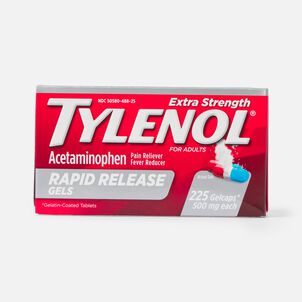When you over-allocate your FSA
You had the best intentions. You never meant for it to happen. But you've over-allocated your FSA savings for the year. What can you do to fix this issue?
FSAs have an employee contribution limit set yearly by the IRS. For 2024 that limit is $3,200 and there is a natural drive to contribute up to the yearly limit since the dollars come out of your paycheck pre-tax.
An over-allocation problem arises when you don't have enough qualified medical expenses to spend that entire amount because FSA funds are "use it or lose it," meaning any money left in your account at the end of year is lost, with a few deadline exceptions.
Maybe you overestimated how much you would be spending on medical expenses, or your circumstances changed and expenses you expected to have to cover are no longer relevant. Either way, the end result is the same. The end of your FSA plan year is looming, and you have unspent money that came out of your paycheck in danger of being forfeited.

Relief for over-allocation
There might be a slight reprieve in your plan in that companies can offer two possible remedies – either a 2 ½ month grace period to spend the previous year's funds or allow for up to $640 (for plan years ending in 2024) to roll over to the next year, but companies can't offer both options and they are not required to offer either. If you are over-allocated, the first place to look for relief is to find out if your company offers either option.
A second area is to go back over your medical spending during the plan's year and find out if you've paid out of pocket for expenses that are covered by your FSA. A surprising number of products and medical services are FSA-eligible and you might have directly paid for something that is reimbursable by your FSA. Track down those receipts and submit to your plan administrator to apply your FSA money toward those expenses.
This can also come into play for expenses incurred late in the plan year. Some employers will offer a "runout period" (also called a "closeout period") in which you have until March 31st to submit receipts for expenses incurred in the previous plan year. You won't be able to incur any new expenses during this time, but expenses you incurred prior to December 31 can continue to be submitted for reimbursement.
A third area of over-allocation relief is to dive into the wide variety of eligible products and services you need but may not have known were eligible, and spend the remainder of your FSA before reaching the deadline. You can cover medicine cabinet staples such as over-the-counter items you use on an ongoing basis or other everyday health products.
Also, if you've put off dental care there's no better time than the present to get that covered.
What is important is to keep up with your FSA balance and your spending deadline to make sure you spend all of the FSA money you've allocated for the year. And, keeping track of your current spending will help you in mapping out your FSA budget for the upcoming plan year.
-
Thank you for visiting the FSA Store Learning Center. Don’t forget to follow us for more helpful tips on Facebook, Instagram, and Twitter.


















